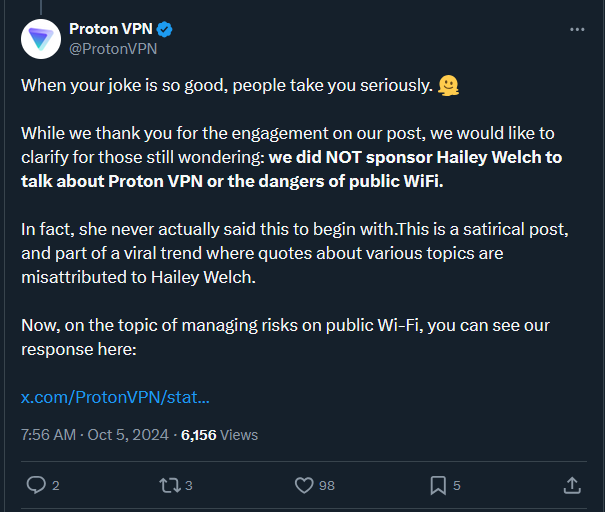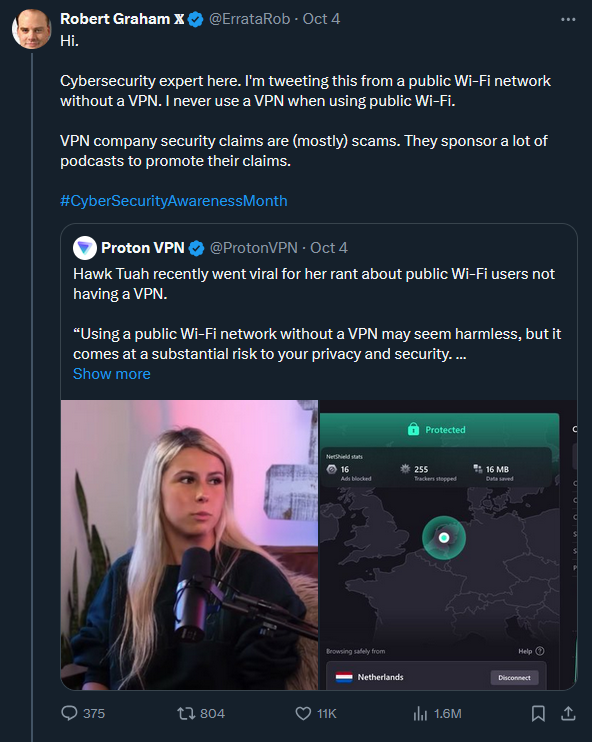this post was submitted on 06 Oct 2024
735 points (90.8% liked)
Technology
60082 readers
3705 users here now
This is a most excellent place for technology news and articles.
Our Rules
- Follow the lemmy.world rules.
- Only tech related content.
- Be excellent to each another!
- Mod approved content bots can post up to 10 articles per day.
- Threads asking for personal tech support may be deleted.
- Politics threads may be removed.
- No memes allowed as posts, OK to post as comments.
- Only approved bots from the list below, to ask if your bot can be added please contact us.
- Check for duplicates before posting, duplicates may be removed
Approved Bots
founded 2 years ago
MODERATORS
you are viewing a single comment's thread
view the rest of the comments
view the rest of the comments


He said "which bank", which could be determined by the sniffing DNS requests, or seeing which IPs his computer is connecting to.
Not a breach of his personal information (assuming the bank that he's using and the client he's using after putting everything in TLS properly).
But with DoH you can’t sniff the DNS, that’s the whole point.
But you can see the ip address, which will id the bank. They can derive other information by ip addresses or leaked data and there's still things using unencrypted connections even today. I generally just connect to my home vpn so at least it's inly my isp spying on me.
Generally you can also read the SNI.
I think this is one of the things that ech is meant to solve. But ech/esni is still not widespread on smaller sites yet I think.
You actually still can. Have a look at DNS fingerprinting